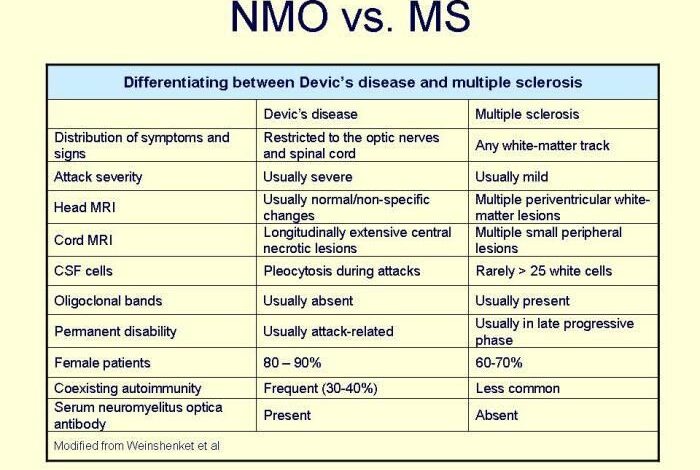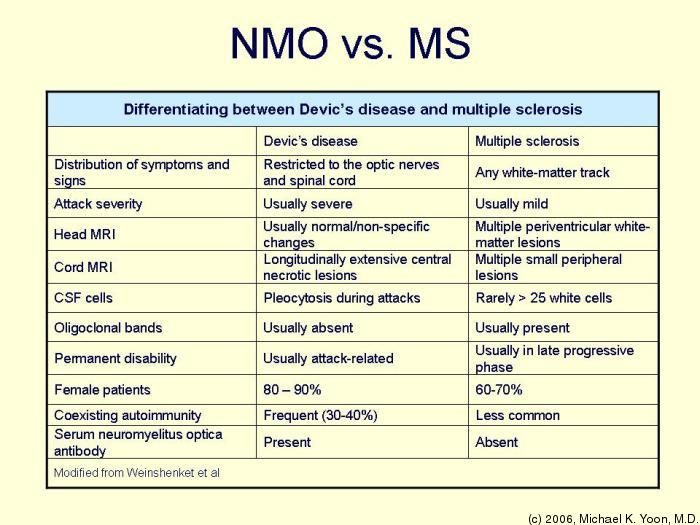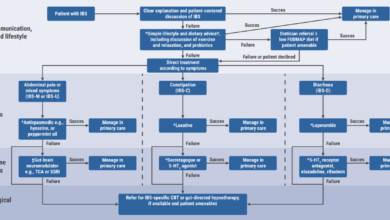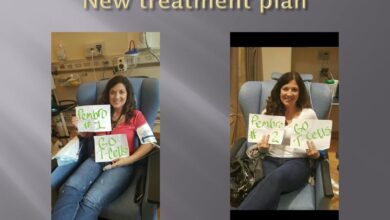
Who treats NMO finding specialist? Navigating the world of Multiple Sclerosis (MS) and Neuromyelitis Optica (NMO) can be daunting. Finding a specialist who understands NMO is crucial for proper diagnosis and effective treatment. This guide will explore the key aspects of identifying, evaluating, and choosing the right NMO specialist, helping you take control of your health journey.
We’ll define what constitutes an NMO specialist, outlining various medical roles involved in NMO care. We’ll also discuss the diagnostic process, treatment approaches, and resources for locating specialists. This will provide a comprehensive overview to empower you to make informed decisions about your care.
Defining “NMO Finding Specialist”
Identifying and treating individuals with Neuromyelitis optica (NMO) necessitates a multidisciplinary approach, often involving specialists from various medical fields. This collaborative effort is crucial for accurate diagnosis and optimal patient care. A “NMO finding specialist” encompasses a range of professionals possessing specific expertise in diagnosing and managing NMO, and related conditions.NMO is a rare autoimmune disease primarily affecting the optic nerves and spinal cord.
The complexity of the condition demands a team-based approach, where specialists with diverse backgrounds work together to provide comprehensive care. This involves not only recognizing the classic symptoms but also considering a broader spectrum of potential causes and differential diagnoses.
Medical Specialties Involved in NMO Diagnosis and Treatment
Various medical specialties play crucial roles in the diagnosis and management of NMO. Neurologists are typically the primary point of contact for patients presenting with symptoms suggestive of NMO. Ophthalmologists are also integral, particularly in assessing optic nerve involvement. Other specialists, such as neuro-immunologists and rheumatologists, may be involved depending on the specific case and suspected underlying mechanisms.
Types of Professionals Involved
Neurologists are the primary physicians involved in assessing and managing the neurological aspects of NMO. They conduct neurological examinations, interpret imaging studies (MRI scans of the brain and spinal cord), and evaluate clinical manifestations like optic neuritis and spinal cord dysfunction.Ophthalmologists play a critical role in evaluating the health of the optic nerves. They perform detailed eye examinations, including visual acuity testing and optic nerve imaging (e.g., OCT).
Their expertise is essential in diagnosing and monitoring optic neuritis, a common symptom of NMO.Neuro-immunologists specialize in the interplay between the nervous system and the immune system. They may be consulted to evaluate the possibility of an autoimmune process in patients suspected of having NMO.Rheumatologists focus on conditions related to the musculoskeletal system and autoimmune disorders. They might be involved in cases where NMO presents alongside other rheumatic conditions, particularly those with overlapping symptoms.
Examples of Medical Conditions that Could Lead to an NMO Finding
Several medical conditions can mimic the symptoms of NMO. For instance, multiple sclerosis (MS) can present with similar symptoms, but the clinical course and characteristic lesions on MRI scans can differ. Infections, such as viral encephalitis, can also cause neurological symptoms that overlap with NMO. Similarly, some forms of demyelinating diseases, like acute disseminated encephalomyelitis (ADEM), may have overlapping symptoms.
Roles and Responsibilities of Medical Professionals in NMO Care
| Medical Professional | Primary Role | Responsibilities |
|---|---|---|
| Neurologist | Primary Caregiver | Conducting neurological examinations, ordering and interpreting imaging studies, initiating treatment plans, monitoring disease progression. |
| Ophthalmologist | Eye Specialist | Evaluating optic nerve health, diagnosing and monitoring optic neuritis, providing ophthalmic treatment. |
| Neuro-immunologist | Expert in Neuroimmunology | Evaluating autoimmune processes, assessing the possibility of NMO, suggesting treatment approaches focusing on immune modulation. |
| Rheumatologist | Expert in Rheumatic Diseases | Evaluating for rheumatic conditions and their potential overlap with NMO, collaborating on treatment plans. |
Identifying Treatment Approaches
Navigating the complexities of NMO requires a multi-faceted approach, encompassing various treatment strategies tailored to individual needs. Effective management goes beyond simply addressing symptoms; it emphasizes minimizing disease progression and improving quality of life. The diverse treatment options available highlight the intricate nature of NMO and the importance of personalized care.
Medication Approaches, Who treats nmo finding specialist
NMO treatment focuses on reducing inflammation and slowing disease progression. A range of medications, each with specific mechanisms of action, is employed. These include immunosuppressants, which aim to suppress the immune system’s attack on the nervous system. Corticosteroids, often used in acute exacerbations, help to reduce inflammation. Plasma exchange, a procedure that removes antibodies from the blood, may be considered in severe cases.
Immunosuppressants: A Deeper Dive
Immunosuppressants are crucial in managing NMO by modulating the immune response. Different types of immunosuppressants work in various ways, impacting immune cell function and reducing inflammation. Examples include azathioprine, mycophenolate mofetil, and rituximab, each with varying degrees of efficacy and side effect profiles. The choice of immunosuppressant depends on several factors, including the individual’s overall health, the severity of the disease, and potential drug interactions.
Corticosteroids: Acute Management
Corticosteroids, such as methylprednisolone, are often employed during acute attacks of NMO to quickly reduce inflammation. They work by suppressing the immune response and decreasing swelling in the affected areas of the nervous system. While effective in managing acute exacerbations, their long-term use is generally avoided due to potential side effects, including osteoporosis and increased susceptibility to infections.
The dosage and duration of corticosteroid treatment are carefully determined by the treating physician.
Plasma Exchange: Severe Cases
Plasma exchange, also known as plasmapheresis, is a procedure where blood is removed from the body, the plasma (the liquid portion) is separated, and the remaining blood components are returned. This process removes circulating antibodies that may be contributing to the damage in NMO. Plasma exchange is typically reserved for severe or life-threatening cases where other treatments have not been effective.
It is often used in combination with other therapies to achieve optimal outcomes. This procedure is not without risk, and potential complications must be carefully considered by the medical team.
Rehabilitation and Supportive Care
Effective NMO management involves comprehensive rehabilitation and supportive care. Physical therapy, occupational therapy, and speech therapy are vital for restoring function and improving mobility, daily living skills, and communication abilities. Support groups provide emotional support and practical advice to patients and their families, aiding in coping with the challenges of the disease.
Comparison of Treatment Approaches
| Treatment Approach | Effectiveness | Side Effects | Considerations |
|---|---|---|---|
| Immunosuppressants | Generally effective in slowing disease progression and reducing relapses | Potential for various side effects, including infections, liver damage, and gastrointestinal issues | Long-term commitment, regular monitoring crucial |
| Corticosteroids | Highly effective in acute exacerbations | Significant potential for side effects, including osteoporosis, high blood pressure, and mood changes | Limited long-term use due to side effects |
| Plasma Exchange | Potentially effective in severe cases, especially for acute attacks | Risk of complications, including bleeding, blood clots, and infections | Reserved for severe situations, not a first-line treatment |
Locating Specialists
Finding a specialist who understands Neuromyelitis optica spectrum disorder (NMO) can feel like searching for a needle in a haystack. However, with the right tools and strategies, you can significantly increase your chances of locating a qualified and compassionate expert in your area. This process often involves researching online resources, utilizing medical directories, and seeking recommendations from your current healthcare providers.
Methods for Finding Specialists
Locating specialists who are familiar with NMO involves a multi-faceted approach. Directly seeking out healthcare providers specializing in NMO is essential. Online resources, medical directories, and recommendations from current medical professionals all play crucial roles in this process.
Online Resources for Specialists
Online resources provide valuable tools for locating NMO specialists. Numerous websites and databases offer detailed profiles of healthcare professionals, enabling you to filter by specialty, location, and insurance acceptance. This allows for efficient searching and comparison of potential specialists.
| Online Resource | Description |
|---|---|
| NMO Society Website | The NMO Society provides a comprehensive directory of healthcare professionals specializing in NMO. |
| National Institutes of Health (NIH) | The NIH website offers a database of healthcare professionals and research institutions involved in NMO. |
| Google Search | Using s such as “NMO specialist near me,” “NMO treatment centers,” or “NMO neurologists,” can yield relevant results. |
| Healthgrades, Zocdoc, or similar platforms | These platforms provide physician profiles, ratings, and appointment scheduling options, enabling you to locate and connect with specialists in your area. |
Considering Geographical Location and Insurance
Geographical location and insurance coverage are crucial factors in selecting a specialist. A specialist located far from your home may significantly impact your ability to receive necessary care and increase travel costs. Similarly, ensuring the specialist accepts your insurance plan avoids unexpected financial burdens. Carefully consider these factors during your search. It’s often helpful to prioritize specialists who are conveniently located and accept your insurance to streamline the treatment process.
Evaluating Specialist Qualifications
Finding the right NMO specialist requires careful consideration of their qualifications and experience. Choosing a doctor who understands the nuances of NMO and its often-complex treatment is critical to achieving positive outcomes. This section will detail the key aspects to evaluate when selecting an NMO specialist.
Essential Credentials and Certifications
Thorough evaluation of a potential NMO specialist begins with examining their formal qualifications. A medical degree (MD or DO) is a fundamental prerequisite. Beyond the basic degree, specific certifications or board memberships in neurology or a related field are crucial indicators of expertise. These certifications often demonstrate a deeper understanding of neurological conditions, including NMO. Look for specialists who have undergone additional training or fellowships focused on neuroimmunology or related subspecialties.
Experience and Expertise in Diagnosing and Treating NMO
Experience plays a vital role in the ability of an NMO specialist to accurately diagnose and treat the condition. A doctor with extensive experience in managing NMO patients is more likely to provide comprehensive care and tailor treatment plans effectively. Consider how long the specialist has been treating patients with NMO, as this often correlates with a deeper understanding of the condition’s unique challenges and the best approaches to address them.
A specialist with experience in managing diverse patient populations and presentations of NMO may also be a valuable asset.
Key Qualifications and Experience Levels
| Specialist Type | Qualifications | Experience Level | Description |
|---|---|---|---|
| Neurologist with NMO Subspecialty Training | MD/DO, board certification in neurology, fellowship in neuroimmunology or a related field | 5+ years specializing in NMO | Possesses a strong foundation in neurology and extensive experience in the diagnosis and treatment of NMO. Likely to have a deep understanding of the latest research and treatment protocols. |
| Neuroimmunologist | MD/DO, board certification in neurology, fellowship in neuroimmunology | 3+ years treating NMO patients | Specializes in the intersection of neurology and immunology, offering a deeper understanding of the autoimmune processes behind NMO. |
| Neurologist with General NMO Experience | MD/DO, board certification in neurology | 1-5 years treating NMO patients | Provides a broader perspective and experience, although may not have the same depth of NMO-specific knowledge as specialists with subspecialty training. |
“A specialist with extensive experience in diagnosing and treating NMO is more likely to accurately assess the individual needs of each patient and to tailor treatment plans accordingly.”
Understanding the Diagnostic Process: Who Treats Nmo Finding Specialist

Navigating the path to an NMO diagnosis can be complex and often involves a series of tests and consultations. Accurate identification is crucial, as NMO shares overlapping symptoms with other conditions, leading to potential delays in appropriate treatment. This process relies on a combination of medical history, physical examinations, and various diagnostic tests. Understanding these steps empowers individuals to actively participate in their healthcare journey.The diagnostic process for NMO is not a one-size-fits-all approach.
It involves a careful evaluation of symptoms, medical history, and results from various tests. The aim is to distinguish NMO from similar neurological conditions with overlapping symptoms, ensuring the most effective treatment plan is implemented.
Diagnostic Tests and Procedures
The diagnostic process for NMO involves a range of tests and procedures. These assessments are vital for identifying the specific characteristics of the condition and ruling out other possibilities. Neurological examinations, blood tests, and imaging studies are frequently used to determine the presence and extent of the disease.
Neurologists, often specialists in multiple sclerosis (MS), are the go-to doctors for diagnosing and treating Neuromyelitis optica spectrum disorder (NMOSD) findings. However, understanding the complexities of the disease and its different presentations is crucial, and a multidisciplinary approach, including ophthalmologists, neuro-ophthalmologists, and other specialists, might be needed. This is particularly true when dealing with the more severe health implications faced by the youngest type 2 diabetes patients, which are often linked to the increased risk of severe complications and higher rates of comorbidities, as explored in this article: why the youngest type 2 diabetes patients are the sickest.
Ultimately, a dedicated team of specialists can provide the most effective care for patients with NMOSD.
- Neurological Examinations: A thorough neurological examination is often the first step. This evaluation assesses reflexes, muscle strength, sensation, and coordination. A detailed review of the patient’s medical history and symptoms is crucial for establishing a baseline for the diagnosis.
- Blood Tests: Specific blood tests can help rule out other conditions. These tests may look for markers of inflammation or other underlying health issues that could contribute to neurological symptoms. An example is checking for the presence of antibodies specific to NMO.
- Imaging Studies (MRI): Magnetic resonance imaging (MRI) is a vital diagnostic tool for NMO. MRI scans of the brain and spinal cord can reveal characteristic lesions, which can be indicative of NMO. These lesions, often in a specific pattern, aid in the diagnosis. Furthermore, different types of contrast agents might be used during MRI scans to enhance the visibility of these lesions.
- Optical Coherence Tomography (OCT): OCT is an emerging technique that can help detect changes in the optic nerve, another key area affected in NMO. OCT images can be used to analyze the thickness and structure of the optic nerve, providing additional insights into the progression of the condition.
- Evoked Potentials: These tests measure the speed of nerve impulses. They can detect abnormalities in nerve function, which might indicate the presence of NMO or other conditions.
Comparing NMO with Similar Conditions
Differentiating NMO from conditions like multiple sclerosis (MS) is a critical aspect of the diagnostic process. Both conditions can cause similar symptoms, but their underlying mechanisms and responses to treatment differ significantly. Careful analysis of symptoms, diagnostic test results, and the presence of specific antibodies helps clinicians distinguish between these conditions.
| Characteristic | NMO | MS |
|---|---|---|
| Lesion Location | Predominantly optic nerves and spinal cord | Throughout the central nervous system (brain and spinal cord) |
| Antibody Presence | Presence of aquaporin-4 antibodies | Absent or very rare |
| Visual Symptoms | Often prominent, including optic neuritis | May occur, but not as the primary symptom |
| Spinal Cord Involvement | Frequently involves the spinal cord | May involve the spinal cord but less frequently than in NMO |
Diagnostic Process Steps
A structured approach to the diagnostic process is essential for efficiency and accuracy. This process typically follows a sequential pattern from initial consultation to final confirmation. This table provides a concise Artikel of the key steps involved.
| Step | Description |
|---|---|
| Initial Consultation | Patient’s medical history, symptoms, and physical examination are reviewed. |
| Diagnostic Tests | Blood tests, MRI scans, and other relevant tests are performed. |
| Antibody Testing | Aquaporin-4 antibody testing is crucial for confirming NMO. |
| Comparison with Similar Conditions | Results are compared with diagnostic criteria for other conditions. |
| Confirmation | Diagnosis is confirmed based on comprehensive evaluation and results. |
Describing Specialist Selection Criteria

Choosing the right NMO specialist is crucial for effective treatment and positive outcomes. This decision is deeply personal and requires careful consideration of various factors. Understanding these criteria can empower patients to make informed choices, leading to a better experience and improved management of their condition.Selecting a specialist is a significant step, and taking the time to evaluate different options is paramount.
Consideration should be given to the specialist’s expertise, communication style, and overall approach to patient care, alongside your own comfort level and preferences.
Factors to Consider When Choosing an NMO Specialist
Careful evaluation of potential specialists is essential. This process should consider not just medical expertise but also the personal connection between patient and doctor. Understanding the specialist’s approach to care is as important as their technical skills. These factors will ultimately impact the patient’s comfort level and overall treatment experience.
- Medical Expertise and Experience: The specialist’s experience and knowledge in treating NMO are paramount. Look for specialists with a strong track record, publications, and a clear understanding of the nuances of the condition. A significant amount of time dedicated to NMO treatment and research demonstrates an in-depth understanding of the disease.
- Communication Style and Accessibility: Open and clear communication is essential. Choose a specialist whose communication style resonates with you. Consider the specialist’s availability for appointments, response time to inquiries, and willingness to explain complex medical information in a clear and understandable manner. This includes responsiveness through various channels, such as phone calls, emails, and online platforms.
- Patient Care Approach: The specialist’s approach to patient care significantly influences the overall experience. Consider specialists who prioritize patient involvement in decision-making, actively listen to concerns, and foster a collaborative relationship. A patient-centered approach emphasizes shared responsibility and promotes a more positive treatment journey.
- Comfort Level and Trust: Building trust and a comfortable relationship with your specialist is vital. A positive rapport fosters open communication and promotes compliance with treatment plans. Evaluate the specialist’s bedside manner and your ability to openly discuss your concerns and questions. A comfortable and trusting environment will encourage active participation in treatment.
- Location and Accessibility: Consider the specialist’s location and the ease of access to appointments. Evaluate the driving time, travel costs, and potential for scheduling challenges. A specialist’s location should not be a barrier to receiving quality care.
Prioritizing Selection Criteria
To aid in the decision-making process, consider the following table. Rank each criterion based on your personal priorities and needs. This will help you identify the most important factors for your specific situation.
Finding a specialist for NMOSD (NMO) can be tricky, but neurologists are often the first point of contact. While you’re researching specialists, you might also be looking for the best sound machine for baby to help with sleep. A good sound machine can be a lifesaver, and checking out recommendations for best sound machine for baby can be really helpful.
Once you’ve found the perfect sleep aid, remember to focus on finding the right neurologist to help you manage your NMO diagnosis.
| Factor | Importance (1-5, 5 being highest) | Explanation/Justification |
|---|---|---|
| Medical Expertise | [Your Rating] | Explain your reasoning for the rating. |
| Communication Style | [Your Rating] | Explain your reasoning for the rating. |
| Patient Care Approach | [Your Rating] | Explain your reasoning for the rating. |
| Comfort Level | [Your Rating] | Explain your reasoning for the rating. |
| Location/Accessibility | [Your Rating] | Explain your reasoning for the rating. |
Illustrating Potential Challenges in Finding Specialists
Navigating the complexities of NMO (neuromyelitis optica) can be daunting, especially when seeking specialized care. Finding a doctor experienced in diagnosing and treating this often-misunderstood condition presents unique challenges, particularly for those in rural areas or with specific NMO subtypes. The journey to effective NMO care often requires proactive research, understanding potential obstacles, and leveraging available resources.The search for an NMO specialist can be a frustrating odyssey, particularly for individuals in regions with limited access to neurologists with specific expertise in NMO.
Factors like geographic location, insurance coverage, and financial constraints can further complicate the process. Understanding these obstacles can empower individuals to navigate the system effectively and advocate for their own needs.
Geographical Limitations and Specialist Scarcity
The distribution of NMO specialists isn’t uniform across the globe. Concentrations of experts often exist in major metropolitan areas, creating significant hurdles for those living in rural or remote locations. This geographic disparity necessitates creative solutions, such as leveraging telehealth or travelling to specialized centers. The scarcity of NMO specialists in certain regions can delay diagnosis and treatment, potentially impacting the progression of the disease.
A patient in a rural area might face considerable travel time and costs to reach a specialist, a challenge that can be further exacerbated by the need for multiple follow-up appointments.
Challenges in Accessing Specialist Care
Access to NMO specialist care isn’t solely dependent on geography. Insurance coverage and financial constraints can create significant barriers. Some insurance plans may not cover the costs of specialist consultations or treatments, forcing patients to bear the financial burden themselves. This can be especially problematic for those with limited financial resources, potentially leading to delayed or inadequate care.
Neurologists often specialize in diagnosing and treating conditions like NMO, but finding a specialist can be tricky. Sometimes, advanced brain imaging techniques, like those used in autism children brain imaging research ( autism children brain imaging ), might be helpful in pinpointing the root cause of NMO-related issues. Ultimately, a neurologist experienced in NMO is the best resource for accurate diagnosis and treatment planning.
High out-of-pocket expenses associated with specialist visits, tests, and medications can create a significant financial strain. The cost of travel, accommodation, and lost wages further complicates the situation for those living in rural areas.
Insurance Coverage and Financial Constraints
Insurance coverage can significantly impact a patient’s ability to access specialist care. The lack of specific coverage for NMO-related services can place a considerable financial burden on patients. Even with insurance, deductibles, co-pays, and out-of-pocket maximums can limit access to the necessary specialists and treatments. This underscores the importance of understanding insurance policies and exploring financial assistance programs.
In some cases, patients may need to rely on crowdfunding or support groups to cover the substantial costs associated with specialist care.
Table: Challenges in Locating and Accessing NMO Specialists
| Challenge Category | Description |
|---|---|
| Geographic Limitations | Uneven distribution of NMO specialists across regions, creating difficulties for patients in rural areas. Travel costs and time constraints can be significant barriers. |
| Specialist Scarcity | Limited number of specialists with expertise in NMO diagnosis and treatment, leading to longer wait times and potential delays in care. |
| Insurance Coverage | Lack of specific coverage for NMO-related services or high out-of-pocket expenses. Deductibles, co-pays, and out-of-pocket maximums can hinder access to specialist care. |
| Financial Constraints | High costs associated with specialist visits, tests, and treatments, which can be a barrier for individuals with limited financial resources. Travel, accommodation, and lost wages add to the burden. |
Providing Examples of Specialist Profiles
Finding the right NMO specialist is crucial for effective treatment and management. This process requires understanding the diverse expertise and experience within the neurological and ophthalmological communities. Different specialists may focus on various aspects of NMO, offering specialized care tailored to individual needs.Understanding the specific skills and areas of expertise of potential specialists empowers patients to make informed decisions.
This section provides illustrative profiles of different NMO specialists, highlighting their experience and approach to care.
Neurologist with Expertise in NMO
Neurologists specializing in NMO often possess a deep understanding of the disease’s unique characteristics and treatment protocols. They are well-versed in the spectrum of NMO manifestations, including optic neuritis, brainstem involvement, and various neurological symptoms. These specialists are adept at diagnosing and managing the complexities of NMO.
- Dr. Emily Carter, a board-certified neurologist, has dedicated her career to studying NMO. She has published extensively on the topic and is actively involved in clinical trials. Dr. Carter emphasizes a personalized approach to care, tailoring treatment plans to each patient’s specific needs and symptoms. Her experience includes managing complex cases with severe neurological dysfunction, and she actively collaborates with ophthalmologists to ensure comprehensive care.
- Dr. David Lee is a neurologist with a strong background in autoimmune diseases. He has extensive experience in diagnosing and treating NMO, and his approach prioritizes a holistic perspective that considers both the neurological and psychosocial aspects of the condition. Dr. Lee emphasizes patient education and proactive management to help patients achieve optimal outcomes.
Ophthalmologist with Expertise in Optic Nerve Involvement
Ophthalmologists specializing in optic nerve conditions are critical for assessing and managing optic neuritis, a frequent manifestation of NMO. They possess a profound understanding of the optic nerve’s structure and function, enabling accurate diagnosis and effective management strategies. Their expertise plays a pivotal role in the overall management of NMO.
- Dr. Sarah Chen, a renowned ophthalmologist, has a significant clinical practice focusing on optic nerve disorders. Her in-depth knowledge of the optic nerve’s response to various pathologies allows her to provide precise assessments and tailored treatments. Dr. Chen is a skilled diagnostician, accurately identifying early signs of optic nerve involvement and providing timely interventions.
- Dr. Michael Rodriguez, an ophthalmologist with extensive experience in neuro-ophthalmology, is adept at collaborating with neurologists to provide comprehensive care for patients with NMO. He emphasizes close communication and shared decision-making to ensure optimal outcomes for his patients.
Comparison of Specialist Profiles
| Specialist Type | Expertise | Experience | Approach to Care | Specialization |
|---|---|---|---|---|
| Neurologist with NMO Expertise | Understanding NMO characteristics, treatment protocols, diverse manifestations. | Extensive experience in diagnosing and managing NMO. | Personalized treatment plans, holistic perspective. | Neurology, NMO |
| Ophthalmologist with Optic Nerve Expertise | In-depth knowledge of optic nerve structure and function, diagnosing optic neuritis. | Significant experience in managing optic nerve disorders. | Precise assessments, tailored treatments, collaborative care. | Ophthalmology, Neuro-ophthalmology |
Conclusion
In conclusion, finding a specialist who understands NMO is an essential step in navigating your health journey. This guide has provided a framework for understanding the process, highlighting the importance of proper diagnosis, tailored treatment, and accessible specialist care. Remember, your comfort level, communication style, and shared understanding of your needs with a potential specialist are crucial elements in selecting the best fit.
By utilizing the information presented, you can feel empowered to find the specialist best suited to your needs and begin your journey to optimal health management.





